Historical Evolution of the Koalas - A Physical Perspective
Koalas' latest and ultimate evolution took place almost 15 million years ago within the continent of Australia. During this period, the icehouse phase emerged at the Australian landscape. Consequently; an extreme degree of cold and frost gripped the whole continent which created a big impact on the basic plantation such as the Australian rain forests and the animals (including the koala ancestors) within the region.
The Koalas' ultimate evolution took place some 15 million years ago, when Australia's drought tolerant plantations i.e., Eucalyptus emerged and the koalas thrived on them.
The frosty conditions destroyed the Australian rain forests while drought tolerant plantations were the only ones to survive. One of those drought tolerant plantation were the Eucalyptus, whose rise also thrived the koalas' ultimate evolution. In fact, today's koalas are almost identical to the koalas that emerged, as a result of the icehouse phase of 15 million years back.
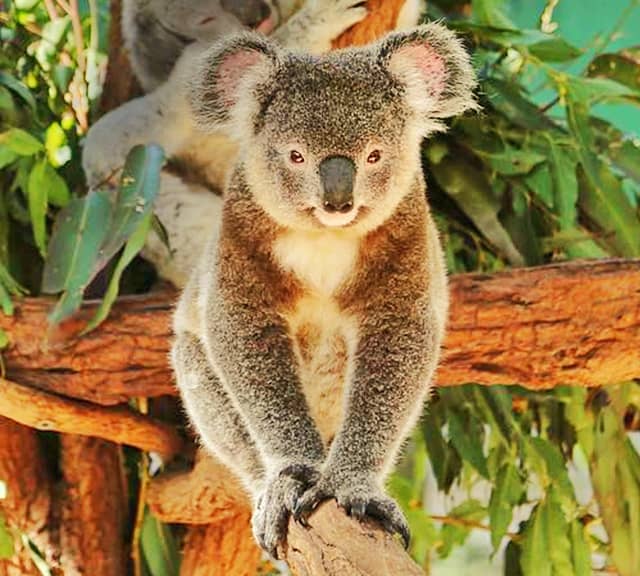
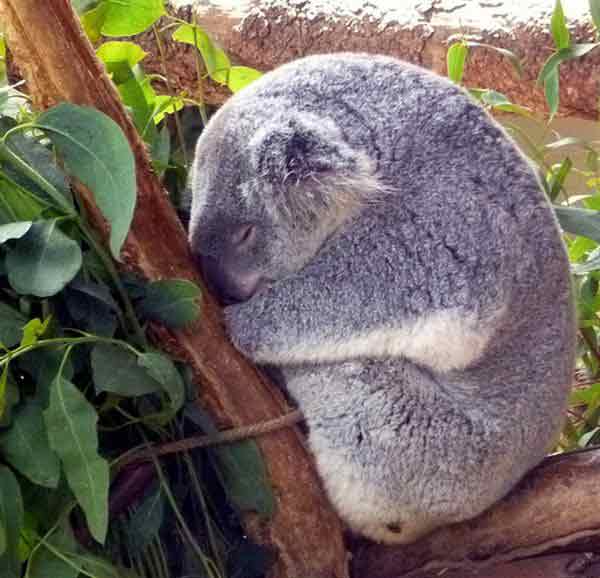
Beyond 15 million years ago, the koalas' ancestral period started which could be dated back from the period in which the Marsupials rose i.e., a time frame of roughly 100 to 125 million years ago. The rise of the Marsupial mammals took place at the Eurasian region (125 million years ago) and from there the Marsupial mammals (including the koalas' ancestors) spread throughout the world.
The origin and evolution of the koalas could be traced back during the rise of the Marsupial from the Eurasian region. This happened almost 125 million years ago.
At that time, the Australian continent was bonded with Antarctica and South America which themselves were part of the huge super continent i.e., Gondwana (Combination of Australia, South America, Africa, Australian, Arabia, Madagascar and Antarctica).
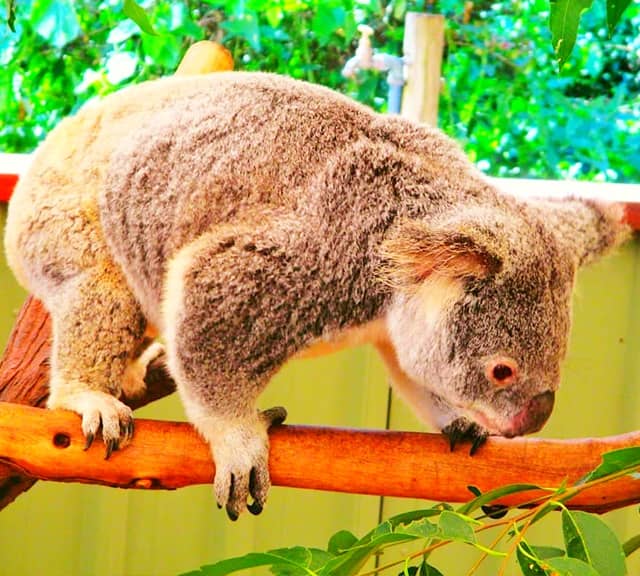
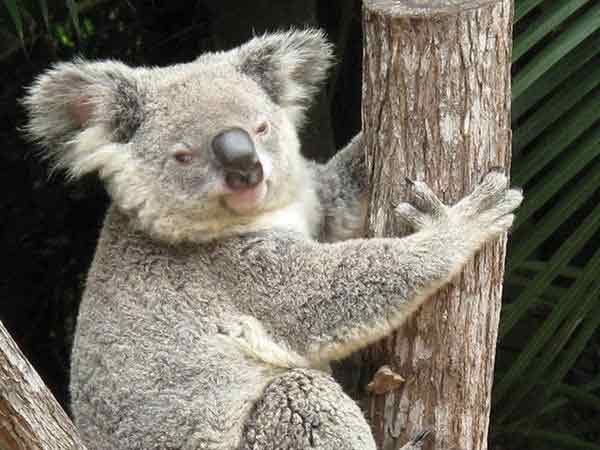
According to the fossil records, the Marsupial animals and the koalas' ancestors entered the Australian continent some 55 million years ago. Chiefly; the presence of the rain forests attracted the Marsupials to enter the Australian continent. At that time the super continent (Gondwana) already had a big split but Australia was still connected to the South America and the Antarctica.
The koala ancestors entered the Australian continent some 55 million years ago while 45 million years ago, the Australian continent started to drift away from the South America and the Antarctica.
10 years later (45 million years ago), the Australian continent started to drift away from both of them, thereby; taking reasonable numbers of the Marsupials (including the koala ancestors) through this drift. During this period the Marsupials enjoyed the abundance of the rain forests within the region for millions of years until the frosty drought period arrived.
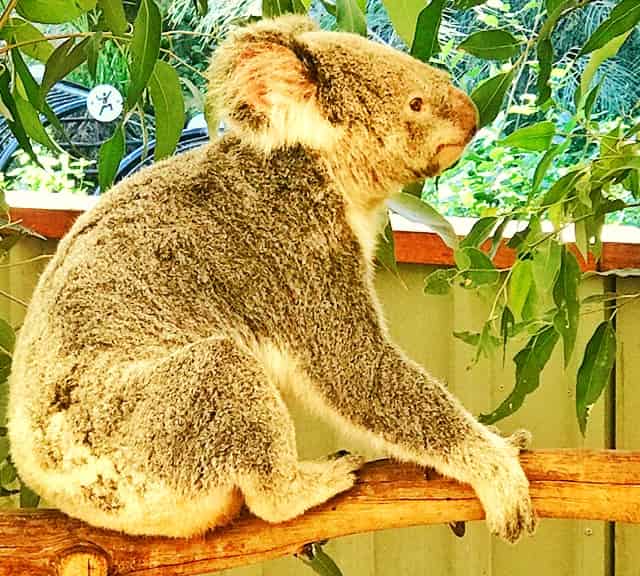
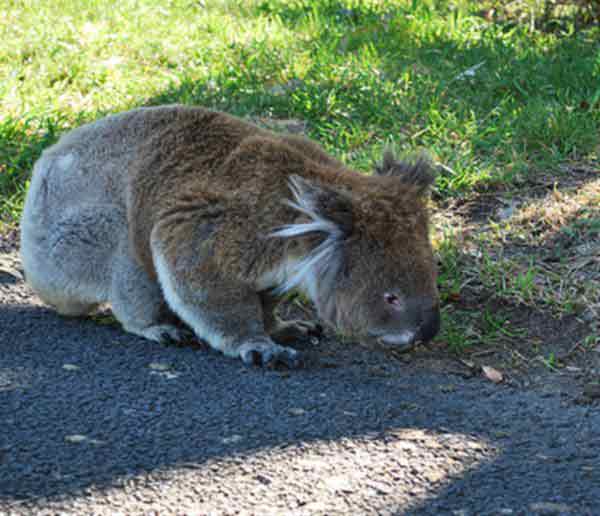
Finally, about 15 million years ago and 30 million years after the Australian drift from the other continents (South American and Antarctica), a major cold wave struck the continent which could be termed as the icehouse phase. It was during this phase that the ultimate evolution of the koalas took place.
The final emergence of the koalas from its ancestors took place some 15 million years ago, when only the drought tolerant plantation (Eucalyptuses) thrived at the continent and the Marsupials had to adapt to them.
During this phase, a frosty drought started to grip the whole continent and only the drought resistant plantation and animals either emerged or survived. One such example included the survival and emergence of the Eucalyptus within the Australian continent. The koalas' ancestors adapted these drought tolerant Eucalyptuses which resulted in the emergence of the koalas within the Australian continent.
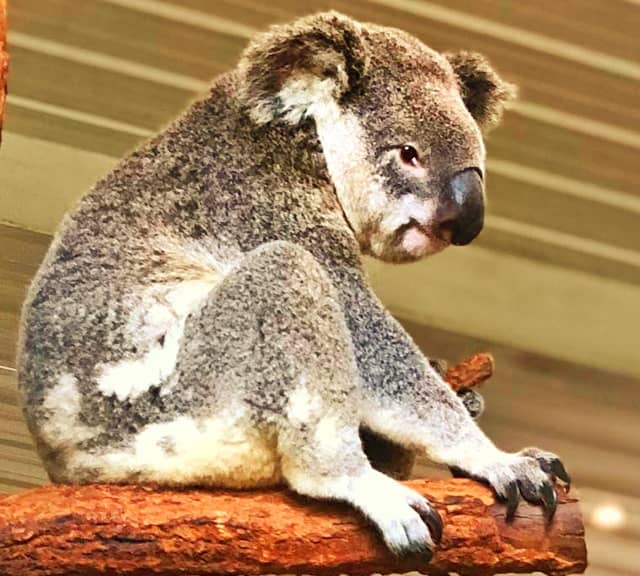
Therefore; summarizing above periods of evolution for the koalas, we can conclude that the koalas belong to Marsupial group of mammals which emerged 125 million years ago from Eurasia. About 55 million years ago a group of Marsupial animals including the koala ancestors migrated to the Australian continent. 45 to 40 million years ago; the Australia continent separated from the Antarctica and South America which resulted in isolation of the Australian Marsupials.
The evolutionary period of the modern day koala started 125 million years ago in Eurasia (the rise of Marsupials) to its final evolution (the rise of Modern Day Koala) some 15 million years ago in Australia.
Finally; within Australia, about 15 million years ago, the koalas ultimately evolved from its ancestors that had to adapt on the drought tolerant Eucalyptuses. The modern day koalas in Australia are almost identical to the koalas that evolved 15 million years ago.
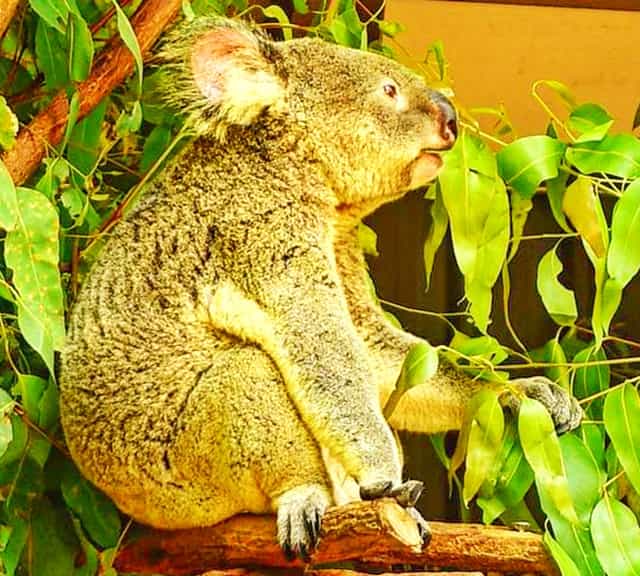
Among the koala ancestors, the modern day wombats are considered to be the closes relatives of the koalas. Wombats which also belong to the Marsupial group of mammals separated from their koala relatives some 40 million years ago. Therefore; it wouldn't be wrong to conclude that the Wombats and the koalas both entered the Australian continent with the same group of ancestors.
Wombats are considered as the closest relatives of the modern day koalas. Both Marsupial relatives separated some 40 to 42 million years ago, when rain forests were in abundance.
Both of them made a perfect adaption and survived seamlessly during the icehouse drought period. Today; the Koalas and the Wombats are considered as the modern day icons of the Australian continent belonging to the Marsupial family.
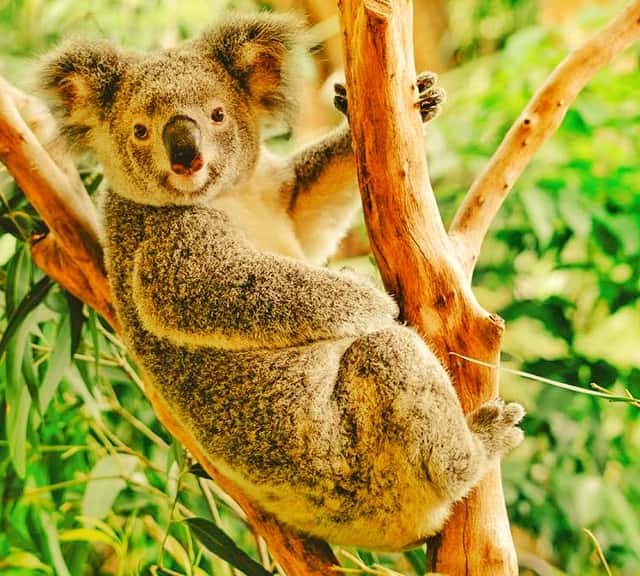
Liger Articles
Marsupials vs. Placental Mammals
Koalas are most popular animals in Australia
Koalas are more popular as compared to Kangaroos
Koalas and their Dominant Nose
Button Shaped Fascinating Eyes of the Koalas
Core Recognizing Features of Koalas
Koalas are the largest tree climbing Mammals in Australia - Koalas as Arboreal
Sizes of Koalas from Queensland, Australia
Sizes of Koalas from Australia's Victorian Origin
Difference between Queensland and Victorian Koalas
Average Weights of Male Koalas
Weighing Male vs Female Koalas
Male Koalas have Loudest of voice among all Australian Mammals
Origin of Koalas & their Evolution
Koalas Population Increased at the end of 20th century
Historical Evolution of the Koalas - A Physical Perspective
Koalas and their Aboriginal and Native Names
It Took 10 years for Aboriginal Australians to Spot and Recognize Koalas
Koalas Live Hardest and Toughest Lives Among all animals
Koalas Tooth Decay through its Abrasive Diet
Koalas Diet is Fully Poisonous and Toxic
Koalas' Food Eucalyptus has Lower Nutrition
Koalas have Lower Energy Levels
Koalas - When Occasionally Spotted on other Leaves for their Food
Why Koalas drink little or no Water?
Koalas & their Advanced Digestive Mechanisms
Why Koalas Sleep more than 20 Hours a Day?
Koalas Lack Energy and Strength
Koala's Tooth from Growth till Tooth Decay
Young Koalas are Better Chewers as Compared to Mature and Elderly Koalas
Why Most Koalas Die of Starvation?
Heat Exhaustion and Heat Strokes among Koalas
Do Koalas lack Intellectual Abilities?
Koalas and their Sense of Smell
Koalas Love Fresh Eucalyptus Leaves as their Food
Koalas' Eucalyptus Leaves' Preferences during summers and Winters
Koalas' Preference for Leaves Having Higher Nitrogen Levels
Koalas Prefer Big Eucalyptus Trees and Love to Stay at Trees' tops.
Koalas Prefer to Live in Areas that have Good Soil and Fertile Lands
Koalas' Per Day Food Consumption
Koalas Food Consumption Depends upon their Body Size
Lactating Female Koalas Consume More Food as Compared to the Normal Female Koalas
Koalas Consume More Food during Winters as Compared to Summers
Female Koalas are very Selective Regarding their Leaf Selection and Food Consumption.
A Baby Koala Joey Lives in her Mother's Pouch for 8 to 9 Months
Gestation Period within Female Koalas
Breeding Behaviors of the Female Koalas
The Size of the Baby Koala Joey at the time of its Birth
Weight of the Baby Koala Joey at the Time of its Birth
At Birth the Baby Koala Joey Travels from Cloaca into their Mother's Pouch
Newborn Koala Joeys have Well-Established Sense of Smell
Koala Joey keeps his Head Inside its Mother's Pouch for 6 Months
Complete Shape and Body Development of the Koala Joey
Pap - The first solid food of the Koala Joeys
When Does Tooth Emerge for Baby Koala Joey?
Aggressive Behavior of Mother Koalas towards their Joeys
Queensland Offers Less Nutritional Values for Koalas
How long does Koalas live? Age of the Koala
Female Koalas Live More than Male Koalas
What is the Average Age of the Male Koala?
Average Ages of the Female Koalas
For How Long a Female Koala can Give Birth to the Koala Joeys?
How many times female Koalas give birth?
Koalas and Australia's Bushfire
Koalas' fur quickly gets rid of rain water
Koalas Resting and Sleeping Postures and Positions during the Hot Summer Seasons
Winter Season and Sleeping Postures of Koalas
Koalas' Urination during Summer and Winter Seasons
Koalas and their Specialized Claws
How does a Koala regulate its Body Temperature?
Food Consumption and Feeding Timings of the Koalas
Koalas Always Prefer Eucalyptus Leaves from the Tree top
How does a Koala Grooms itself?
Koalas' Territories and ranges within Australia's Victorian Areas
Koalas' Territories and Ranges within Australia's Queensland Areas
Behavior of the Alpha Dominant Male Koala
Aggressiveness of Female Koalas
Scent Marking Behavior of the Male Koalas
Mating Strategy of the Male Koalas
Fights and Territorial Encounters of Male Koalas
Sounds and Vocalizations of Male Koalas
Sounds and Vocalization of the Female Koalas
Koalas and their Facial Expressions
Breeding Ages of the Male and Female Koalas
Factors Influencing the Success of Koalas' Fertility Rates
Behavior of the young and adolescent Koala Joey
When Does a Mother Koala Says Goodbye and Leaves the Young Koala Joey?
Playful Behavior of the Young Koala Joeys
Koalas - Mating Season and Mating Months
Koala Informationen, Bilder, Neuigkeit, und Erforschung
Коала - сумчатый млекопитающий